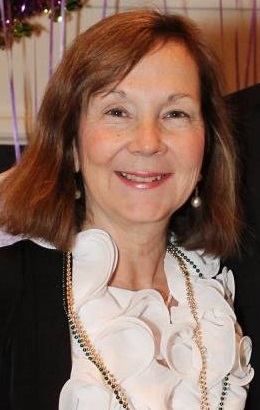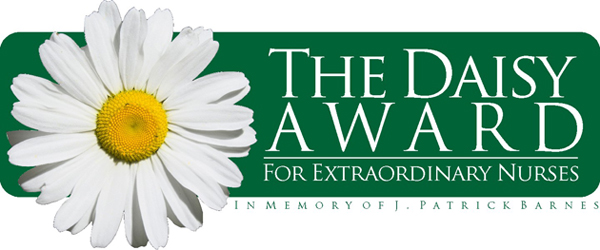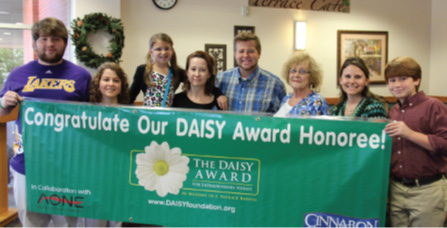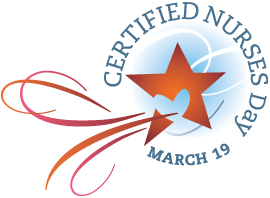
Florence Nightingale (1820-1910), considered the founder of educated and scientific nursing; providing care to wounded and ill soldiers during the Crimean War.
IN 1859, FLORENCE NIGHTINGALE WROTE, “NO MAN, NOT EVEN A DOCTOR, EVER GIVES ANY OTHER DEFINITION OF WHAT A NURSE SHOULD BE THAN THIS – ‘DEVOTED AND OBEDIENT.’ THIS DEFINITION WOULD DO JUST AS WELL FOR A PORTER. IT MIGHT EVEN DO FOR A HORSE. IT WOULD NOT DO FOR A POLICEMAN.”
Alex Smith, MD wrote in www.KevinMD.com, social media’s leading physician voice, that “Florence Nightingale was the first to publicly decry the sorry reputation of nurses” (as in the quote) “but nurses remain vastly under-appreciated for the work they do.”
On January 21, 2016 Shelly Lopez Gray outlined in http://www.mightynurse.com seven ways nurses feel under-appreciated.
- When our good work is not recognized.
- When no one says thank you.
- When no one says I’m sorry.
- When no one asks how we’re feeling.
- When we’re expected just to keep going.
- When no one verbalizes that we do a lot.
- When we aren’t supported.
As reported on October 12, 2015 in www.NursingTimes.net by Jo Stephenson, a survey in Britain of 2,000 adults found that “The vast majority of the public think nurses are under-appreciated for the work they do, with nearly 60% ranking the profession as the most under-valued in Britain.”
Even across the spectrum of all professions, on March 11, 2013, Alan Hall, a Forbes contributor, cited U.S. Department of Labor statistics that “more than two million Americans are voluntarily leaving their jobs every month and that number is continuing to grow.” The Labor Department refers to this category as “Quits.”
A recent study on the Quits statistics by Accenture reported that 43% of the Quits were from lack of recognition.
But effective this month, June 2016, IRMC Chief Nursing Officer Lisa Hedenstrom, PhD, RN, MBA, NEA-BC is launching comprehensive programs to recognize IRMC nurses.

Dr. Lisa Hedenstrom
Dr. Hedenstrom, who joined IRMC in June 2015, most recently worked at Piedmont Healthcare in Atlanta as system chief nursing officer. She earned her Ph.D. at Georgia State University and her Master of Business Administration from Brenau University in Gainesville, Ga. She brings more than 30 years of nursing and administrative experience to IRMC.
The mission of her nurse recognition program is “To provide exceptional, patient-centered evidence-based nursing care.” It’s the evidence-based nursing care that is at the center of the program, because Dr. Hedenstrom is putting systems in place to find evidence that nurses deserve recognition.
Her program, backed by a nursing advisory and experienced nursing leadership teams, is focused on “Meaningful Recognition.”
“Meaningful recognition is often perceived as a simple form of feedback that involves saying thanks, complementing another, or providing a pat on the back. While these actions are important, the core of feedback associated with meaningful recognition involves acknowledging one’s behaviors and the impact these actions had on others, ensuring the feedback is relevant to the recognized situation, and is equal to the person’s contribution.” (AACN 2005 / Nursing Economics$/November-December 2012/Vol.30/No.6)
A huge step in achieving meaningful nurse recognition is Dr. Hedenstrom’s leadership in having IRMC begin participating in The Daisy Award ® For Extraordinary Nurse – to honor the super-human work nurses do for patients and families every day.
Daisy is an acronym for Diseases Attacking the Immune System.

The Daisy Award, was created in 1999 to honor the memory of J. Patrick Barnes who died at age 33 of complications of Idiopathic Thrombocytopenic Purpura (ITP). The nursing care Patrick received when hospitalized profoundly touched his family.
Today there are over 2,000 healthcare facilities in all 50 states and 15 other countries, committed to honoring nurses.
According to http://www.daisyfoundation.org, “The strategic impact of the program on nurses and their organizations is deep, affecting nurses’ job satisfaction, retention, teamwork, pride, organizational culture, healthy work environment, and more.”
As of this month, patients, families and/or colleagues will be nominating extraordinary IRMC nurses for The Daisy Award. IRMC has the flexibility to be able to designate the criterion they deem extraordinary. A committee of staff nurses will review the nominations for whom should be presented The Daisy Award, on a quarterly basis.
“The opportunity to win this award inspires and motivates exceptional nursing and motivation through self-awareness.” (Nursing Economics$/November-December 2012/Vol.30/No.6)
Daisy award winners will receive:
- A certificate held in a handsome portfolio, proclaiming the recipient an “Extraordinary Nurse.”
- A DAISY Award pin (The Daisy Foundation learned that nurses love to wear pins on their I.D. badges!).
- A unique, hand-carved serpentine stone sculpture from Zimbabwe, entitled “A Healer’s Touch.”
- A Spotlight page on The Daisy Award website, featuring a photo and telling the story of why this nurse was honored.
Each DAISY Award facility also receives a large celebratory banner that is hung in the recipient’s unit for a month, generating very positive conversation about the special role nurses play in patient care. The presentation generally takes place in the nurse’s unit; often as a surprise to the Honoree.

East Alabama Medical Center
The next item on Dr. Hedenstrom’s agenda as a long-term goal is to earn a Pathway to Excellence ® Designation, a program of the American Nurses Credentialing Center. Pathway to Excellence “is a new organizational credential to recognize healthcare facilities that have created positive work environments where nurses can flourish.”

To earn a Pathway designation, IRMC must demonstrate that it has incorporated 12 practice standards into its operating policies, procedures and management structure.
- Nurses control the Practice of Nursing.
- The work environment is safe and healthy.
- Systems are in place to Address Patient Care and Practice Concerns.
- Orientation Prepares New Nurses.
- The Chief Nursing Officer is Qualified and Participates in All Levels of the Facility.
- Professional Development is Provided and Utilized.
- Competitive Wages / Salaries are in place.
- Nurses are recognized for achievements.
- A balanced Lifestyle is encouraged.
- Collaborative Interdisciplinary.
- Nurse Managers are Competent and Accountable.
- A Quality Program and Evidence-Based Practice are Used.
Additionally, on March 19, 2016, certified IRMC nurses celebrated Nurse’s Day, an annual day of recognition for nurses dedicated to nursing professionalism, excellence, recognition and service.

An other IRMC recognition program that was incepted in 1999, prior to Dr. Hedenstrom joining IRMC, is a Clinical Excellence Award.
$270,000 has been distributed among 201 Clinical Excellence Award recipients since 1999, due to the generosity of Joseph Laraja, a man who made it a point to reward outstanding nurses, patient care services associates and support staff at IRMC.
Each of this year ’s 10 winners—who received $1,500 each—demonstrated outstanding commitment to excellence in patient care.
The 18th Annual Clinical Excellence Awards were presented during Hospital Week by the IRMC Foundation. The program continues today from the generosity of The Laraja Foundation, Inc., which endowed the program upon Joseph’s passing in 2005.
Yet another employee engagement tool has been established called the “Pride Award.” It will be given out on a quarterly basis to ANY employee, whom she says “has gone beyond the call of duty.” There are pride cards and boxes located throughout the IRMC facility where employees, visitors, doctors, administrators and patients can nominate a caregiver.
And in conclusion, Dr. Hedenstrom has begun to send out thank you cards and sharing complements and positive stories.
“The scope of our programs,” says Dr. Hedenstrom, “is to recognize people who take care of others and have the hardest job on the planet.”
“There is no bonus for nurses who achieve an objective like a stockbroker or a salesman might make when hitting their objective. With nurses it is much quieter; there is usually no direct praise. With meaningful recognition you know what you did to make a difference.”
Staff Nurse, Children’s Memorial Hospital, Chicago, Illinois
